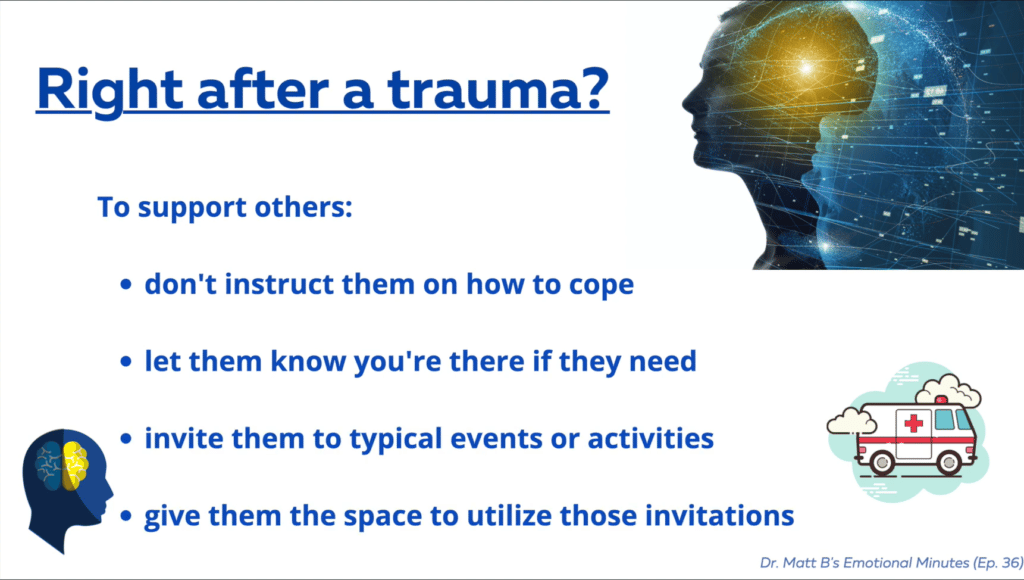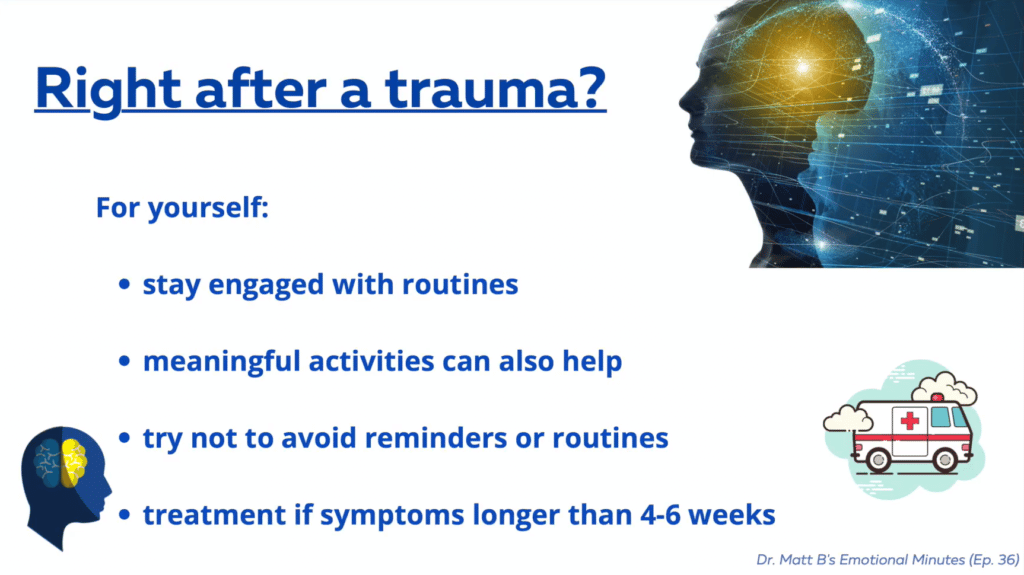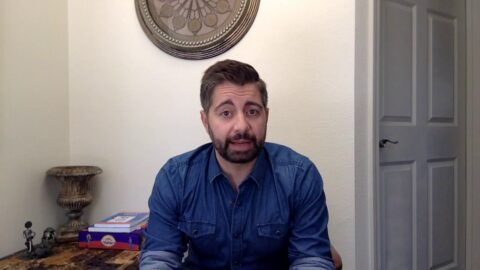How do I handle a trauma that just happened? What should people do after a traumatic event? There are many misconceptions about how to handle a recent traumatic event or tragedy. But there are also some healthy ways research has found to approach a traumatic event immediately after it occurs.
Check out our latest video on how to cope with a recent trauma! There is also a good book on peoples’ immediate reactions to traumatic events and resilience after trauma.
Hi, it’s Dr. Matt B. Today I’m here in front of a fire station, where many first responders do great work. These heroes see many people through some of the worst days of their lives. They also encounter many traumatic events themselves in their line of work.
Traumatic events can be very scary and difficult to experience. Some people who experience such an event feel fearful or uneasy for a few days or weeks. Others may go on to have more difficult long term emotional experiences. About 18% of people who experience highly traumatic events go on to develop PTSD.
When something bad happens, many want to help. For instance, after school shootings, therapists will often flock the school to aid students. Or maybe you just want to help a friend who has been through something difficult. This desire to help is a noble sign of humanity’s best. However, the way in which we help can be very important!
What not to do
Many believe that the best way to help others after is an event is to help them immediately process the event in a constructive way. This method has even been set in a structured way know as Psychological Debriefing or Critical Incident Stress Debriefing (CISD). These methods involve efforts to have victims share their experiences and recognize them in a constructive way. However, research has found that these methods do not help people in the long run and they may even be counterproductive to people’s efforts to cope.

We do not understand why some people do better than others in the period right after a potentially traumatic event. Trying to get people to share their experiences immediately after an event may get in the way of their own natural efforts to cope that may actually be effective for them over time.
Beneficial ways to handle a potential trauma
What has shown to work is a Psychological First Aid approach (PFA). This approach provides education about normal reactions and other coping responses. It also promotes engagement with positive social support resources a person may have.
If you have experienced a traumatic event, one of the best things to do is to stay engaged in your routines. Purposefully engaging in activities that give you meaning and sense of purpose can help as well. It can be normal to experience the urge to avoid things that remind you of the trauma you experienced (e.g., a car accident site). It is usually helpful to still encounter those things even despite that urge unless there is actual threat of safety.

If someone you know has experienced a traumatic event, it is very important to not tell them how they should cope. Additionally, avoid pressuring them to talk about it. Doing this can interfere with their natural abilities to cope with what happened that work for them. The best way to support them is to acknowledge that something happened, let them know you’re there for them if they need to speak no matter what, and leave it up to them to come to you if they need to. For example, invite them to participate in events or activities in an open and supportive way without pressuring them to attend.
I hope talking about immediate responses to events that feel traumatic today was helpful. If you find yourself having a lot of distressing memories of the event, nightmares, and/or giving in to urges to avoid the event and it has been 4-6 or more since the event occurred, I recommend contacting a mental health provider.
See you for the next episode of Emotional Minutes. -Dr. Matt B



